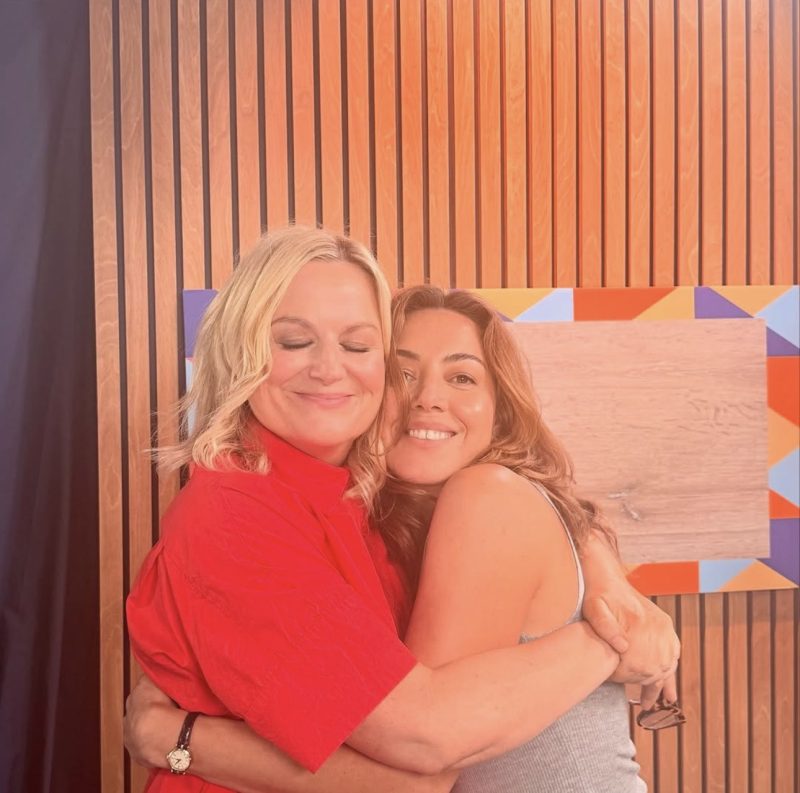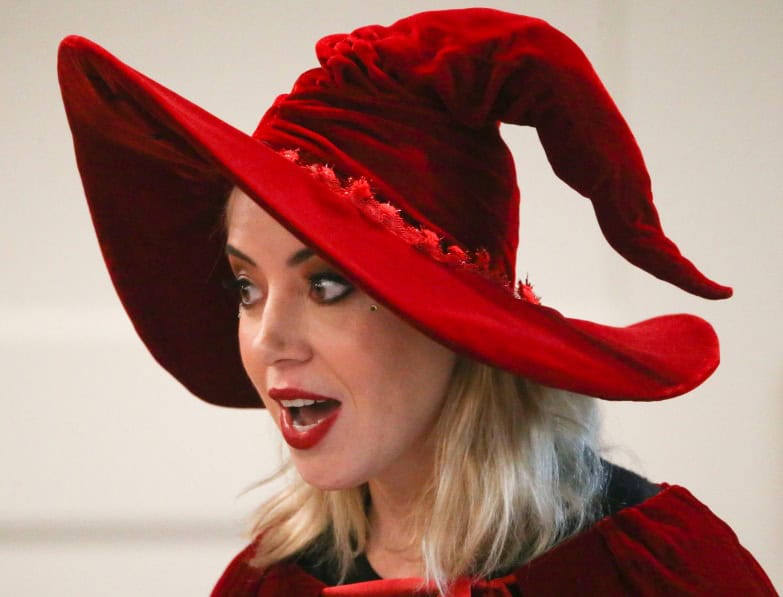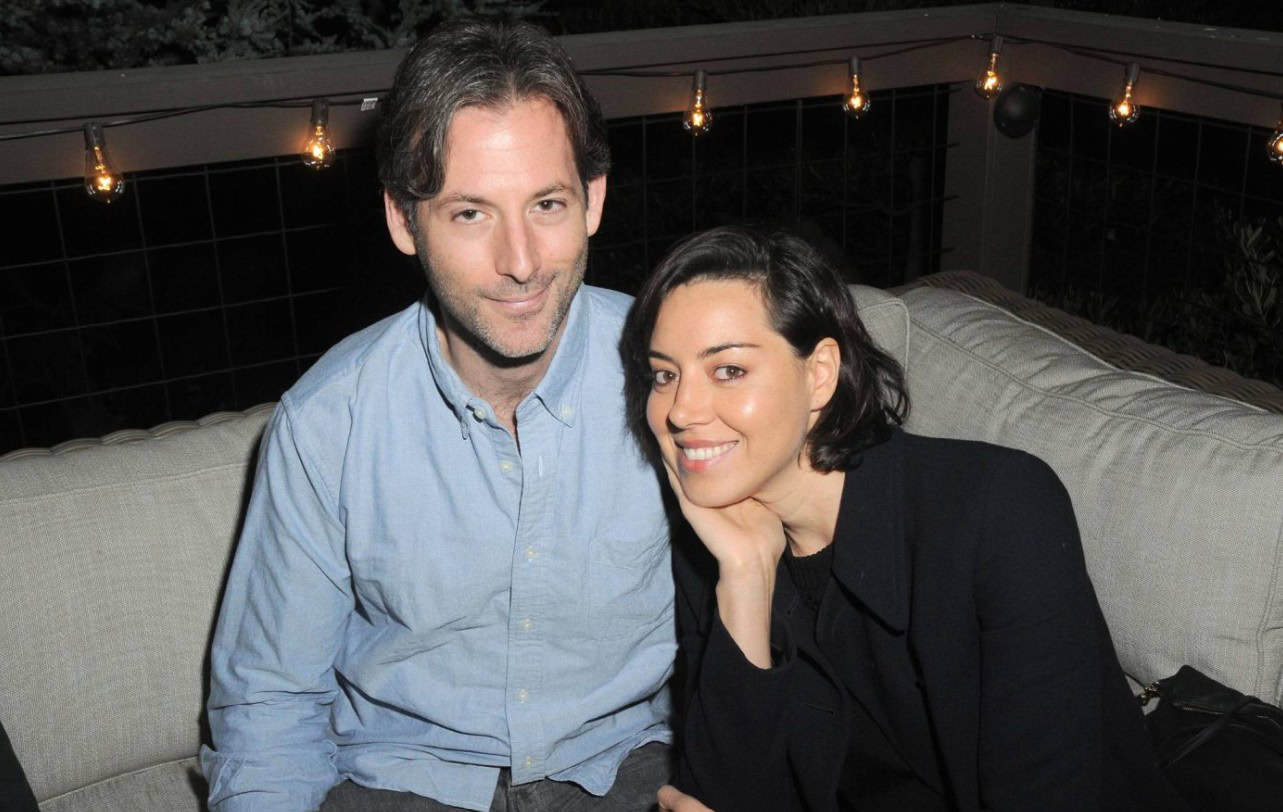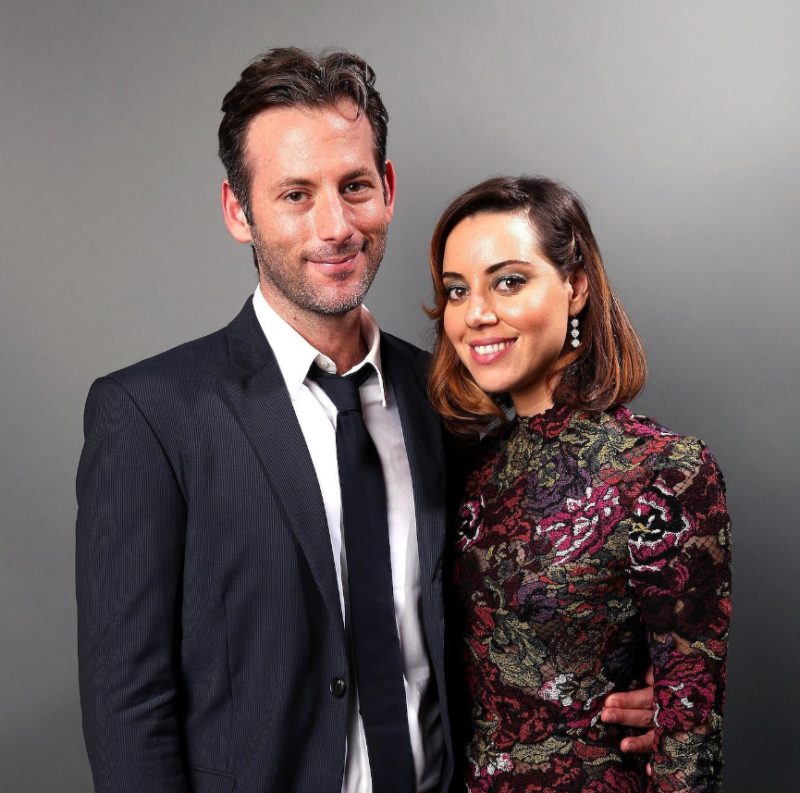How Aubrey Plaza Uses Film to Process Grief: The Gorge Director’s Response
There’s something achingly honest about the way Aubrey Plaza describes grief. Not as a passing storm or a wound that heals, but as a permanent resident in her world. Seven months after losing her husband, Jeff Baena, to suicide, Plaza sat down with Amy Poehler and did something remarkable—she gave grief a face, a shape, a tangible form that the rest of us could finally understand.
The Gorge: Where Monsters Live and Grief Takes Form
When Aubrey Plaza watched the sci-fi horror film “The Gorge,” she didn’t see monsters or cliffs or typical Hollywood scares. She saw herself. She saw her daily reality mapped out in stunning, terrifying clarity across the screen.
In a quote on NME, Aubrey says, “In the movie, there’s like a cliff on one side and there’s a cliff on the other side, then there’s a gorge in between and it’s filled with all these like monster people that are trying to get them.” “I swear, when I watched it, I was like that feels like what my grief is like.”
This isn’t your typical celebrity interview moment. This is raw human experience translated through the unexpected lens of horror cinema. Plaza found her truth in Miles Teller’s fictional struggle, and suddenly, grief had geography.
The Ocean That Never Recedes
What strikes you most about Aubrey Plaza’s description isn’t the darkness—it’s the permanence. She doesn’t talk about healing or moving on or finding closure. She talks about coexistence with something vast and terrible.
“At all times there’s like a giant ocean of awfulness, that’s like right there and I can see it,” she continued. “Sometimes I just want to dive into it, and just like be in it. Then sometimes I just look at it, and sometimes I try to get away from it. But it’s always there.”
The ocean analogy cuts deep because it’s honest. Grief isn’t a mountain you climb once and conquer. It’s not a tunnel with light at the end. It’s an ocean that surrounds you, and some days you float, some days you swim, and some days you nearly drown.
When Love Stories End in Unimaginable Ways
But even love stories that seem written in the stars can end in ways that shatter everything you thought you knew about life. When Baena took his own life in January at 47, he didn’t just leave behind a grieving wife—he left behind questions that may never have answers.
The Weight of Separation and Second-Guessing
Perhaps the most heartbreaking detail to emerge was that Plaza and Baena had separated four months before his death. A month later, concerning remarks from Baena prompted Plaza to arrange a welfare check. The “what ifs” and “if onlys” that must haunt her add another layer to an already unbearable loss.
This is where Aubrey Plaza’s honesty becomes even more profound. She’s not just grieving a husband’s death—she’s grieving the complexity of a relationship that ended before it was over, the weight of separation mixed with the shock of permanent loss.
Finding Function in the Ruins

On Amy Poehler’s podcast, Aubrey said, “Right in this very, very present moment, I feel happy to be with you.” “I’m here and I’m functioning, and I feel really grateful to be moving through the world. I’m okay, but it’s a daily struggle, obviously.”
This is what resilience actually looks like—not bouncing back but learning to function while carrying something impossibly heavy. Plaza isn’t pretending she’s “healed” or “moving on.” She’s simply reporting from the front lines of survival: I am here. I am functioning. Today, that is enough.
The Monsters That Try to Get You
When Plaza references the “monster people” from “The Gorge” trying to get Miles Teller’s character, she’s naming something we all recognize but rarely discuss—the way grief actively pursues you. It’s not passive sadness waiting in the corner. It’s an active force that stalks, that reaches, that tries to pull you into that ocean of awfulness.
But here’s what makes Plaza’s metaphor so powerful: in the movie, the characters don’t defeat the monsters—they learn to navigate around them. They survive not by winning, but by understanding the terrain and respecting the danger.
Why Her Honesty Matters Now

In a culture obsessed with healing journeys and positive outcomes, Aubrey Plaza’s unflinching description of ongoing grief feels revolutionary. She’s not selling hope or transformation. She’s not packaging trauma into inspiration. She’s simply saying: this is what it looks like to live with a permanently altered heart.
Her decision to delete Instagram after Baena’s death, her months of absence from public life, her gradual return through small appearances—these aren’t signs of weakness. They’re signs of someone who understands that some losses require you to rebuild your entire relationship with the world.
The Daily Architecture of Surviving
Plaza’s grief doesn’t follow a timeline or stages. It exists in the architecture of daily life—the choice to get up, the decision to function, the moment-by-moment navigation between looking at the ocean and being pulled under by it.
“It’s a daily struggle, obviously,” she said, and in those four words lies the entire truth about profound loss. There’s no graduation day from grief, no moment when you get to say you’ve mastered it. There’s just the daily choice to keep moving through a world that feels fundamentally different than it did before.
Through her comparison to “The Gorge,” Aubrey Plaza has given us a new vocabulary for understanding loss—one that acknowledges the permanent presence of pain while celebrating the quiet heroism of continuing to exist alongside it. Her monsters may always be there, but so is she, still functioning, still grateful, and still here.


